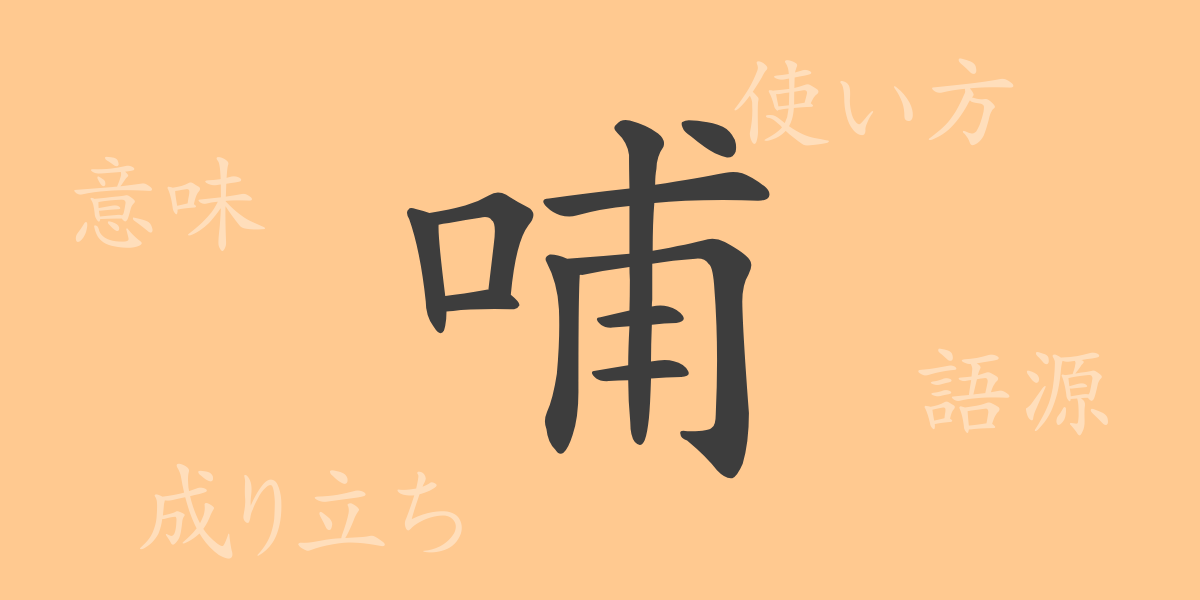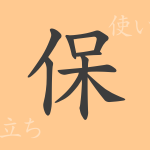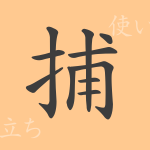The rich world of Japanese expressions is deeply intertwined with 常用漢字(じょうようかんじ, Jōyō Kanji). Among them, the character “哺(ほ, ho)” may not frequently appear in daily life, but it carries profound meanings and history. In this article, we will delve into the origins, meanings, usage, readings, and idiomatic expressions of “哺(ほ, ho),” uncovering its allure.
The Origin of 哺(ほ, ho)
The kanji “哺(ほ, ho)” can trace its roots back to oracle bone script used in ancient China. As a word, its etymology is linked to meanings such as “to nourish” and “to raise.” The pictograph represents a child with an open mouth waiting for food and a parent nourishing the child. Thus, “哺(ほ, ho)” is deeply connected with the act of nurturing life.
Meaning and Usage of 哺(ほ, ho)
The kanji “哺(ほ, ho)” means “to nurse,” “to nourish,” and “to raise.” Commonly, it is used to describe the act of feeding children or animals. Metaphorically, it can also signify imparting knowledge or education to nurture growth.
Readings, Stroke Count, and Radical of 哺(ほ, ho)
The kanji “哺(ほ, ho)” encompasses various details:
- Readings: The On’yomi (音読み, Chinese reading) is “ホ(ほ, ho),” and the Kun’yomi (訓読み, Japanese reading) is “はぐく.む(haguku.mu)”
- Stroke count: It consists of 10 strokes.
- Radical: The radical is 口部(くちへん, kuchihen), which means “mouth.”
Idiomatic Expressions and Proverbs Using 哺(ほ, ho)
Idiomatic expressions and proverbs containing “哺(ほ, ho)” often relate to nurturing or raising. For instance, “哺育(ほいく, hoiku)” means caring for and educating children, while “哺乳(ほにゅう, honyū)” refers to breastfeeding or mammals. These terms are commonly used in contexts related to motherhood and upbringing.
Summary of 哺(ほ, ho)
Each kanji carries its own history and cultural significance, and “哺(ほ, ho)” is no exception. While it may not be commonly used in daily life, it holds an essential meaning of nurturing life. For us as mammals, the significance of “哺(ほ, ho)” is fundamentally important. We hope this deep dive has allowed you to appreciate the profound allure of the kanji “哺(ほ, ho).”

























